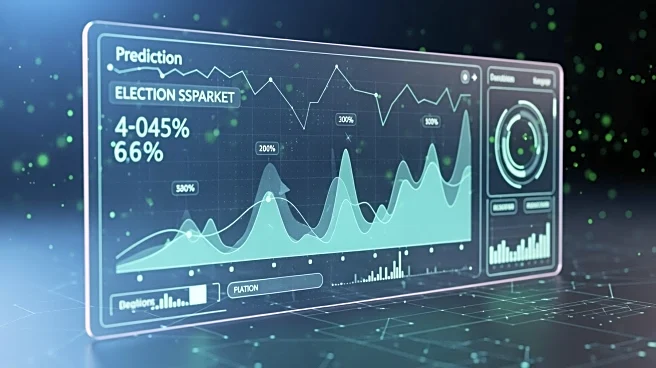What's Happening?
Prediction markets, which offer real-time data and financial incentives, are raising concerns about potential manipulation in elections. These markets, unlike traditional polling, lack ethical guardrails
and can be influenced by a small number of wealthy participants. Dr. Don Moore from the University of California, Berkeley, highlighted the risk of manipulation by deep-pocketed market participants. Platforms like Polymarket and Kalshi have shown betting odds that contradict traditional polls, raising questions about their influence on public perception and voter behavior.
Why It's Important?
The potential manipulation of prediction markets poses a significant threat to the integrity of democratic processes. If wealthy individuals can influence public perception through these markets, it could undermine trust in electoral outcomes and democratic institutions. This issue highlights the need for regulatory oversight to ensure that prediction markets do not distort voter behavior or election results. The situation also underscores the broader challenge of balancing technological innovation with ethical considerations in political contexts.
What's Next?
As prediction markets gain visibility, there may be increased calls for regulatory frameworks to address potential manipulation. Stakeholders, including political leaders and regulatory bodies, might explore measures to ensure transparency and fairness in these markets. The ongoing debate could lead to policy discussions on how to integrate prediction markets into the electoral process without compromising democratic principles.









